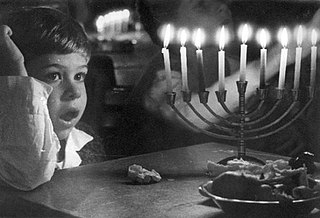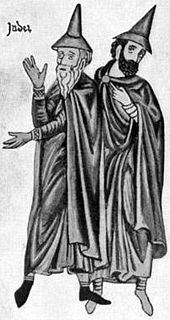Related Research Articles

Judah ha-Nasi or Judah I, was a second-century rabbi and chief redactor and editor of the Mishnah. He lived from approximately 135 to 217 CE. He was a key leader of the Jewish community during the Roman occupation of Judea.

Akiva ben Yosef, also known as Rabbi Akiva, was a leading Jewish scholar and sage, a tanna, of the latter part of the first century and the beginning of the second century. Rabbi Akiva was a leading contributor to the Mishnah and to Midrash halakha. He is also sometimes credited with redacting Abraham's version of the Sefer Yetzirah, one of the central texts of Jewish mysticism. He is referred to in the Talmud as Rosh la-Hakhamim "Chief of the Sages". He was executed by the Romans in the aftermath of the Bar Kokhba revolt.

Jewish ethics is the moral philosophy of the Jewish religion or the Jewish people. A type of normative ethics, Jewish ethics may involve issues in Jewish law as well as non-legal issues, and may involve the convergence of Judaism and the Western philosophical tradition of ethics.

The Mishneh Torah, also known as Sefer Yad ha-Hazaka, is a code of Jewish religious law (Halakha) authored by Maimonides. The Mishneh Torah was compiled between 1170 and 1180 CE, while Maimonides was living in Egypt, and is regarded as Maimonides' magnum opus. Accordingly, later sources simply refer to the work as "Maimon", "Maimonides", or "RaMBaM", although Maimonides composed other works.
In the Hebrew Bible, a nazirite or nazarite is one who voluntarily took a vow described in Numbers 6:1–21. "Nazarite" comes from the Hebrew word נזיר nazir meaning "consecrated" or "separated". This vow required the person during this time to:

Repentance is one element of atoning for sin in Judaism. Judaism recognizes that everybody sins on occasion, but that people can stop or minimize those occasions in the future by repenting for past transgressions. Thus, the primary purpose of repentance in Judaism is ethical self transformation.

Kosher foods are those that conform to the Jewish dietary regulations of kashrut, primarily derived from Leviticus and Deuteronomy. Food that may be consumed according to halakha (law) is termed kosher in English, from the Ashkenazi pronunciation of the Hebrew term kashér, meaning "fit". Food that is not in accordance with law is called treif meaning "torn."

Parashat Vayikra, VaYikra, Va-yikra, or Wayyiqra is the 24th weekly Torah portion in the annual Jewish cycle of Torah reading and the first in the Book of Leviticus. The parashah lays out the laws of sacrifices. It constitutes Leviticus 1:1–5:26.

Tzav, Tsav, Zav, Sav, or Ṣaw is the 25th weekly Torah portion in the annual Jewish cycle of Torah reading and the second in the Book of Leviticus. The parashah teaches how the priests performed the sacrifices and describes the ordination of Aaron and his sons. The parashah constitutes Leviticus 6:1–8:36. The parashah is made up of 5,096 Hebrew letters, 1,353 Hebrew words, 97 verses, and 170 lines in a Torah scroll. Jews read it the 24th or 25th Sabbath after Simchat Torah, generally in the second half of March or the first half of April.
Simeon ben Azzai or simply Ben Azzai was a distinguished tanna of the first third of the 2nd century.

Kedoshim, K'doshim, or Qedoshim is the 30th weekly Torah portion in the annual Jewish cycle of Torah reading and the seventh in the Book of Leviticus. It constitutes Leviticus 19:1–20:27. The parashah tells of the laws of holiness and ethical behavior, repeats the ten commandments, and describes penalties for sexual transgressions. The parashah is made up of 3,229 Hebrew letters, 868 Hebrew words, 64 verses, and 109 lines in a Torah Scroll.

Emor is the 31st weekly Torah portion in the annual Jewish cycle of Torah reading and the eighth in the Book of Leviticus. The parashah describes purity rules for priests, recounts the holy days, describes the preparations for the lights and bread in the sanctuary, and tells the story of a blasphemer and his punishment. The parashah constitutes Leviticus 21:1–24:23. It has the most verses of any of the weekly Torah portions in the Book of Leviticus, and is made up of 6,106 Hebrew letters, 1,614 Hebrew words, 124 verses and 215 lines in a Torah Scroll.

Naso or Nasso is the 35th weekly Torah portion in the annual Jewish cycle of Torah reading and the second in the Book of Numbers. It constitutes Numbers 4:21–7:89. The parashah addresses priestly duties, camp purification, restitution for wrongs committed, the wife accused of unfaithfulness, the nazirite, the Priestly Blessing, and consecration of the Tabernacle. Naso has the largest number of letters, words, and verses of any of the 54 weekly Torah portions. The parashah is made up of 8,632 Hebrew letters, 2,264 Hebrew words, 176 verses, and 311 lines in a Torah Scroll.

Re'eh, Reeh, R'eih, or Ree is the 47th weekly Torah portion in the annual Jewish cycle of Torah reading and the fourth in the Book of Deuteronomy. It comprises Deuteronomy 11:26–16:17. In the parashah, Moses set before the Israelites the choice between blessing and curse. Moses instructed the Israelites in the laws that they were to observe, including the law of a single centralized place of worship. Moses warned against following other gods and their prophets and set forth the laws of kashrut, tithes, the Sabbatical year, the Hebrew slave, firstborn animals, and the three pilgrim festivals.
In Jewish law, ṭumah and ṭaharah are the state of being ritually "impure" and "pure", respectively. The Hebrew noun ṭum'ah, meaning "impurity", describes a state of ritual impurity. A person or object which contracts ṭumah is said to be ṭamé, and thereby unsuited for certain holy activities and uses until undergoing predefined purification actions that usually include the elapse of a specified time-period.

Ki Teitzei, Ki Tetzei, Ki Tetse, Ki Thetze, Ki Tese, Ki Tetzey, or Ki Seitzei is the 49th weekly Torah portion in the annual Jewish cycle of Torah reading and the sixth in the Book of Deuteronomy. It comprises Deuteronomy 21:10–25:19. The parashah sets out a series of miscellaneous laws, mostly governing civil and domestic life, including ordinances regarding a beautiful captive of war, inheritance among the sons of two wives, a wayward son, the corpse of an executed person, found property, coming upon another in distress, rooftop safety, prohibited mixtures, sexual offenses, membership in the congregation, camp hygiene, runaway slaves, prostitution, usury, vows, gleaning, kidnapping, repossession, prompt payment of wages, vicarious liability, flogging, treatment of domestic animals, levirate marriage, weights and measures, and wiping out the memory of Amalek.

Asceticism is a term derived from the Greek verb ἀσκέω, meaning "to practise strenuously," "to exercise." Athletes were therefore said to go through ascetic training, and to be ascetics.
The commandment to sanctify the progeny of Ahron is a commandment based in the Hebrew Bible, and developed in rabbinical teaching that requires believers in Judaism to sanctify their priests (kohanim) in various ways. These include assisting him to abstain from any prohibitions in the Law that apply to him, and by affording him first rights in areas relating to holiness and the service of God. In the enumeration of Maimonides this is the 32nd positive commandment of the Law.
In the Tanakh, the term herem is used, among other meanings, for an object or real property to be devoted to God, with God authorizing a kohen to be its receiving agent.

Jewish law and custom prescribe ritual hand washing in a number of situations. This practice is generally known by the Hebrew term נטילת ידיים, which literally means lifting up of the hands.
References
![]() This article incorporates text from a publication now in the public domain : Kaufmann Kohler (1901–1906). "Abstinence". In Singer, Isidore; et al. (eds.). The Jewish Encyclopedia . New York: Funk & Wagnalls.CS1 maint: uses authors parameter (link)
This article incorporates text from a publication now in the public domain : Kaufmann Kohler (1901–1906). "Abstinence". In Singer, Isidore; et al. (eds.). The Jewish Encyclopedia . New York: Funk & Wagnalls.CS1 maint: uses authors parameter (link)
- ↑ Pesachim 88b
- ↑ Yerushalmi Kiddushin 4, end
- ↑ Sifra, ad loc., and Nedarim 10a
- ↑ Yerushalmi Nedarim 9 41b
- ↑ Mishneh Torah, De'ot, 3:1
- ↑ Nazir, 4b
- ↑ Avodah Zarah 20b; Sifra, Kedoshim, beginning
- ↑ Proverbs 23:20
- ↑ Bava Metzia 92a
- ↑ Pirkei Avot 1:1; Avot of Rabbi Natan 2
- ↑ Hullin 44b
- ↑ Leviticus Rabbah 13
- ↑ Mekhilta of Rabbi Ishmael, Yithro, Amalek 2
- ↑ See Chovot haLevavot, 9:5, 11:6
- ↑ Plato, De Legibus, vi. 782; Plutarch, Symposion, viii. 83; Porphyrius, De Abstinentia, iii. 25, 26; Diogenes Laërtius, viii. 20; Spiegel, Eranische Alterthümer, i. 455
- ↑ Mishneh Torah, Hilkot De'ot, 1-3